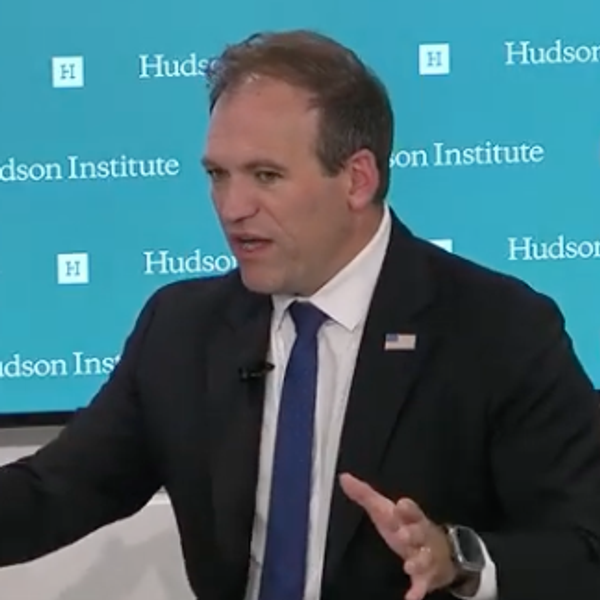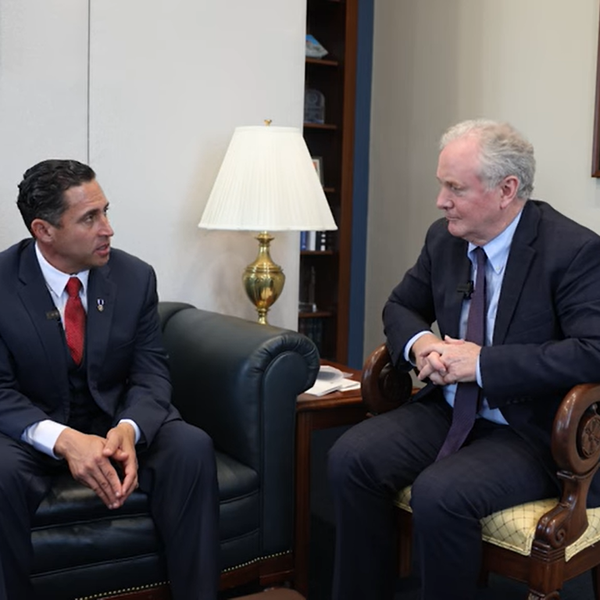Much Western commentary is now celebrating the decline of Russian power in the Caucasus as a result of the war in Ukraine, denouncing Russia as a wholly negative force in the region and suggesting that the United States, NATO, or the European Union could replace it. This analysis is largely wrong on all counts.
Russian influence has not been as negative as it suggests; and the West is in no position to replace it, both for local geopolitical reasons, and because neither the United States, NATO nor the EU has any will to dispatch the military forces to the region that would be necessary to ensure stability.
Insofar as they encourage Western hostility to Russia in the region while being unable to propose serious alternatives to Russian power, these arguments are highly irresponsible and risk contributing to a return of ethnic conflict to a region that has seen far too much of it.
These mistakes of analysis begin with the origins of the conflicts in the region. It has become a constant trope of this approach that it was Moscow — both before and after the collapse of the Soviet Union — that started these conflicts and has deliberately perpetuated them in order to maintain its regional hegemony. From the point of view of Georgians and Azeris, it does indeed look this way; but from the point of view of their Abkhaz, Ossete and Armenian opponents, Russia has supported their fight for national freedom, and it is only Russian help that has prevented them from being crushed.
In the case of the war between Armenia and Azerbaijan over the disputed territory of Nagorno Karabakh, the origins of this war predate the Soviet Union. Clashes between Armenians and Azeris in the modern era began when Russian imperial rule was severely weakened during the 1905 Revolution and again following the collapse of the empire itself in 1917 — a pattern repeated when the Soviet Union began to unravel in the late 1980s.
Alignment between most Armenians and the Russian Empire was cemented by their mutual hostility to the Ottoman Empire. In 1915-16, when the Ottoman government massacred its Armenian minority, only the advance of the Russian imperial army saved a last remnant of the Armenians of Turkey from extermination. After the First World War, when Armenia once again faced the likelihood of being crushed between Turkey and Azerbaijan, the advance of the Red Army and the country’s incorporation into the Soviet Union, saved the Armenians from this fate.
As to Nagorno-Karabakh, far from initiating this conflict (except in the sense that in the 1920s, the Soviet government tried to square an impossible ethnic and territorial circle by creating an autonomous region within Azerbaijan), from the 1960s to the 1980s, it was Soviet Armenian governments that sought its transfer to Armenia — a quest that Moscow refused for fear of provoking renewed ethnic conflict. Since the end of the Soviet Union, the extent of Russian help to the Armenians of Nagorno-Karabakh has been subject to much disagreement.
What cannot be denied, however, is that it has been the Russian military alliance with Armenia itself, the deployment of Russian military forces in Armenia, and Russia’s nuclear shield that have deterred Turkey, a NATO member, from attacking Armenia in order to help the Turkic people of Azerbaijan, much as Ankara invaded Cyprus in 1974 to help the Turkish community there after the military junta in Greece overthrew President Makarios. Armenians do not forget that the West did not defend Cyprus then, any more than it defended Armenia after the First World War. This is why, despite worries about the decline of Russian power and Armenia’s anger at Moscow’s failure to forcefully intervene against Azerbaijan to defend Nagorno-Karabakh (which is not covered by the Russian-Armenian security treaty), Yerevan is not expected to leave the Moscow-led Collective Security Treaty Organization (CSTO) anytime soon.
Had Russia not intervened in the Second Nagorno-Karabakh War of 2020, where it was able to introduce a belated ceasefire that secured the deployment of Russian peacekeeping forces to the region, the Armenians of Nagorno-Karabakh — who were attacked by an Azerbaijani army heavily supplied by Turkey as well as by Israel — would at worst have found themselves ethnically cleansed.
While distrust toward Moscow has only grown among citizens of the Republic of Armenia since Prime Minister Nikol Pashinyan rose to power through the anti-corruption and pro-democracy Velvet Revolution in 2018, the same does not apply to the Armenians in Nagorno-Karabakh where Russian peacekeepers are seen as their only security.
It is true that in recent years Moscow has conducted a difficult diplomatic balancing act between Armenia, Turkey, and Azerbaijan. Despite its alliance with Armenia, the Russian government has not wished to drive Azerbaijan completely into the arms of NATO. Turkey’s increasing estrangement from NATO and the United States has also created valuable strategic opportunities for Russia, as demonstrated by Turkey’s semi-neutral approach to the war in Ukraine.
Russian ambiguities, however, find their mirror image in the deeply conflicted approach of the West to the Nagorno-Karabakh conflict. On the one hand, Western public opinion (insofar as it has paid any attention to the issue at all) has generally sympathized with the Armenians. Religious and cultural affinities play a role, as does the influence of the large Armenian diasporas in the United States and France, and the fact that Armenia is a (somewhat flawed) democracy, whereas Azerbaijan is a hereditary dictatorship of the Aliyev dynasty, whose founder was a high-ranking general in the KGB. The importance of the Armenian diaspora for U.S. domestic politics (especially elections in California) was underlined by Nancy Pelosi’s visit to Yerevan (but not Baku) in September 2022.
On the other hand, the West can hardly officially recognize Nagorno-Karabakh’s secession from Azerbaijan while denouncing Crimea’s secession from Ukraine as wholly illegal (even though Western recognition of Kosovo independence might seem to provide a legitimate precedent for both). Moreover, Turkey is still a NATO member, even if now a semi-detached one. The West cannot afford completely to alienate Turkey, and, as Ankara’s veto on Sweden’s NATO accession demonstrates, Turkey has considerable power to embarrass the West.
Azerbaijan’s dictatorship does not make the West less anxious for buying Azerbaijani oil and gas any more than the West allows democratic criticism of the Gulf autocracies to prevent it from buying their energy. Finally, hardline anti-Iranian circles in Washington hope to use Azerbaijan, and separatist nationalism among the Azeris of Iran as weapons against the Iranian state. This also explains Israel’s weapons supplies to Azerbaijan.
Caught between these contradictory but deeply-rooted impulses, the United States and Europe are probably structurally incapable of developing a coherent and viable strategy for the Caucasus, let alone of mobilizing the resources and will necessary to intervene decisively in the region. Caution would seem to be the most appropriate course.
Editor's Note: Artin Dersimonian was an intern at the Armenian Embassy in Washington in 2018. The Terjenian-Thomas Assembly Internship Program at the Armenian Assembly — which is mentioned in the QI brief on which this article is based — facilitated Dersimonian's internship with the embassy.














